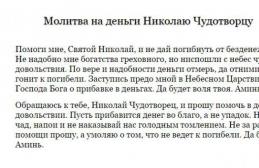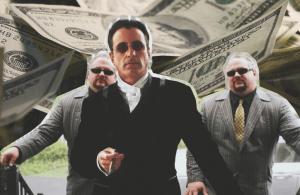Enter your request
Yuri Zhigalkin: The memoirs of Nikita Khrushchev, the former Soviet leader who served on several key fronts' military councils during World War II, contain surprisingly frank pages about United States aid to the Soviet Union. Removed from power and freed from obligations towards his Kremlin comrades, the former head of the Communist Party and the Soviet government rethinks the events of the war he experienced and comes to conclusions that are unconventional for Soviet and Russian history textbooks about the US contribution to the successes of the Soviet army.
And the main one is this:
First of all, I want to say about Stalin’s words, which he repeated several times when we were having “free conversations” with each other. He directly said that if the United States had not helped us, we would not have won this war. Face to face with Hitler's Germany, we would not have withstood its onslaught and lost the war.
We have lost the most powerful bases for the production of aircraft, tanks, engines for tractors and cars. We found ourselves without means of transportation, we no longer had factories that provided us with road transport, especially tractors, without which we cannot fight. No traction! Almost all of our artillery was American-powered. Once, after Stalin’s death, I suggested: “Let’s give all the cars that we produce to our military, because it’s simply indecent to look at: there’s a parade going on, but the tractors are American.” I would like to emphasize here how many of these machines and what quality we received. Imagine how we would advance without them? I can’t imagine how they would move from Stalingrad to Berlin. Our losses would be colossal, because our troops would have no maneuverability. What about long-range bomber aircraft? At the beginning of the war, we actually did not have it. For us it was, so to speak, symbolic. Sometimes several planes reached Berlin. Such bombing cannot disrupt the enemy's production potential. When the United States entered the war, putting its industry on the rails to meet the demands of the war, the enormous potential of American industry created a real threat to Germany. I think that Hitler probably imagined that this was the beginning of his end.
Yuri Zhigalkin: And one more observation of Nikita Sergeevich Khrushchev:
In 1943, when we were advancing near Kiev, the enemy’s aviation was already quite thin and did not represent such a serious force as at the beginning of the war. Whose merit was this? American aviation. It disabled the German factories that produced aircraft. Is this not enough? And their other factories that produced weapons were destroyed by the United States very persistently, persistently and competently.
The blood of our soldiers and equipment from the United States and England combined to ensure victory, to ensure the actions of the Red Army, which fought and inflicted heavy losses on our common enemy.
Yuri Zhigalkin: How serious a factor in the victory of the Soviet Union on the Soviet-German front do experts today see the contribution of the United States? Radio Liberty's interlocutors are Stephen Blank from the Washington Council on Foreign Relations and Martin van Creveld from the University of Jerusalem.
Evgeniy Aronov: Disputes about the importance of supplies to the USSR through Lend-Lease still do not subside, and not only in Russia. For you, as for other Western specialists, as far as I understand, this question remains open?
Steven Blank: Yes, on the one hand, I don’t understand how, without American supplies, the Soviet Union could have won the war against Germany in the time frame in which it actually achieved victory. It is important to remember that this assistance was comprehensive. It included food for the army and home front; food made up about a fifth of the total Lend-Lease. Soviet soldiers called American stew “the second front”, such was its value to them. American assistance also included a huge variety of engines, tank and aircraft, and vehicles, without which modern maneuver warfare is unthinkable and which the Soviet armed forces sorely lacked. This is almost 80 thousand jeeps, more than 150 thousand light trucks, over 200 thousand Studebaker tractors, from which the backbone of the motorized transport system of the Soviet army was formed and which allowed it to advance, starting in 1943, and to advance quite quickly. Lend-Lease helped to open another bottleneck in the logistics system of the Soviet army and gave it the opportunity to wage a war of maneuver. I mean means of communication. This includes a telephone cable, which the Soviet Union received in the amount of one and a half million kilometers, and 35 thousand radio transmitters, and 380 thousand field telephones. I'm not even talking about the supply of high-quality steel, aluminum, stamping presses, which greatly increased labor productivity at tank factories. In the end, we should not forget simply about the weapons transferred to the Soviet Union.
Evgeniy Aronov: On the other hand, Stephen Blank is not trying to prove that the Soviet Union, in principle, would not have won this war without American help. Some factories were evacuated from cities in the west of the country to the Ural-Volga-Siberian region, which already had its own industrial base, and he admits that the lost capacity of the western regions could be replenished over time. But for him there is no doubt that without American assistance, provided promptly and in the required volume, the Soviet army would have fought longer and would have paid a much higher price for victory. The more difficult it is to feed an army and the more difficult it is to ensure its advancement, the longer it is necessary to fight. This means that the borders of Europe and its political structure would be very different from those that emerged after the war, sums up the expert at the American Foreign Policy Council.
And here is what Martin van Creveld, a military historian from the University of Jerusalem, says about the role of Lend-Lease in the victory over Germany:
Martin van Creveld: Let me remind you that the recipient of the lion's share of American Lend-Lease was not the Soviet Union, but Great Britain. At one point, a quarter of its resources used in the war came from America. So in relation to Britain, much more than in relation to the USSR, the hypothesis is true that without America it would have gone down. As for the assistance to the USSR, only a small part of it was in the form of weapons as such, and even weapons - American planes or tanks, for example - were poorly suited to the conditions of war on the Eastern Front due to their technical characteristics.
The key supplies, from my point of view, were, firstly, cars, which partially replaced the railways that fell into the hands of the Germans in the first months of the war, and, secondly, food and winter clothing. Nevertheless, I must disappoint you: war is such a complex thing that I do not know of a single scientific methodology that would allow us to say unambiguously whether the Soviet army would have prevailed over the Wehrmacht in the absence of American Lend-Lease or not.
Evgeniy Aronov: Well, what if we still try to evaluate the US contribution to the successes of the Soviet army against the Wehrmacht?
Martin van Creveld: Of course, cars, food, clothing, industrial equipment are all very valuable, but I am not able to calculate the importance of American supplies in these positions. In other words, I do not know how much additional time it would have taken for the Soviet Union to achieve victory without Lend-Lease, or how much its casualties would have increased. I don’t think, however, that the Soviet Union would have lost without American help, since, in my opinion, the turning point in the war came in the winter of 1941–42, that is, before the scale of supplies became strategically significant. (On the other hand, it is very interesting to look at the schedule of deliveries of “non-strategic” equipment under Lend Lease – and the successes on the “Eastern Front”. Editor’s note BRBNews)
Evgeniy Aronov: Van Creveld, however, agrees with those who argue that Lend-Lease was so wide in its geography - deliveries were made to different parts of the USSR, from Murmansk to Vladivostok - that, in fact, it represented a special front, cargo delivery was associated with significant losses. Moreover, the initial supplies to the USSR, although small in volume, were very difficult for the United States, because at that time American industry had not yet been transferred to a military footing, the United States armed forces were in a deplorable state, and many feared that the country was about to she will be drawn into the war, being virtually unarmed. In this situation, producing military products for export, and not for our own needs, and even for the ally’s army, which may completely collapse today or tomorrow, required, according to our interlocutor, remarkable courage from the Roosevelt administration and Congress. The Israeli professor does not want to guess whether the Soviet Union would have won without Lend-Lease or not, but what he is sure of is that the tripartite coalition of the USA, Britain and the USSR would not have won if American industry had not worked for all three armies . The speed with which this happened and the scale of production was historically unprecedented and is unlikely to ever be repeated.
Yuri Zhigalkin: My interlocutors are Sergei Khrushchev, a professor at Brown University, and Yuri Yarym-Agaev, an economist and fellow at the Hoover Institution.
Professor Khrushchev, your father refers to the opinion of Stalin, who allegedly believed that the USSR would have lost the war without the help of the United States. This point of view cannot be found either in Soviet or, I believe, in Russian history textbooks.
Sergei Khrushchev: He is an objective person. In addition, do not forget that we are talking about the battle of Stalingrad, where he was a member of the military council, he knew this situation. He knew that at that moment the Soviet Union needed and depended on American help. We know that the Soviet army did not drive GAZ cars or ZIS five-ton cars; it drove Studebakers. everyone knew that there was a “Willis”; they couldn’t imagine any “Katyusha” without a “Studebaker”. They were the main means of transportation for the Katyushas. And only during the Victory Parade in 1945, the Katyushas were ordered to be switched from Studebakers to Soviet-made vehicles, only those that participated in the parade. In addition, few people may have known, but due to the loss of territories and factories, the Soviet Union could not continue producing weapons without American aluminum, manganese, tungsten and other materials. Third: The Soviet Union lived on American aid and food. People of my generation and older remember: powdered eggs, American stew along with American boots - these were everyday things in life. Therefore, he perceived it as such that we should give credit to the Americans. He believed that we should not engage in ultra-patriotism, denying the participation of other countries in our victory, because this would not be in our favor, but only against us.
Yuri Zhigalkin: But, frankly speaking, if you look at the broader picture of what was happening at the beginning of the war, including the conclusions of your father, the data on the losses of the Soviet Union, the data on its industrial potential, one gets the feeling that American assistance was not just , so to speak, a contribution to the victory of the USSR. Do you have a feeling that it was she who prevented the collapse of the Soviet front in the first year of the war?
Sergei Khrushchev: I agree that without American help, 1942 could have been a year of defeat. Because the flight of 1941 destroyed the infrastructure of the defense complex. Because these factories were located in Ukraine, Belarus, in the western regions of Russia, they were all relocated to the east. The Kharkov plant moved to the Urals, the Voronezh plant moved to the Urals, and so on. But if we are talking about 1941, then in 1941 it is still impossible to talk about the serious contribution of American lend-lease assistance to defense; it was just beginning, it was only being agreed upon. Defense was built only on those resources that remained in reserve.
Yuri Zhigalkin: As far as I understand, these were human resources.
Sergei Khrushchev: Not only human resources, there was a certain amount of weapons left. But, starting from 1942, not from the summer, but from the winter of 1942, this became a very serious contribution to the capabilities of those factories that produced tanks, airplanes and everything else. I worked in aviation, everyone knew it was aluminum. Or everyone, for example, knew that all Soviet planes fly on American brake fluid, which was called “chassis liquor,” because they drank half of it, but the other half was poured into the planes.
Yuri Zhigalkin: Professor Yarym-Agaev, your point of view on, let’s call it that, the contribution of the United States to the victory on the Soviet-German front?
Yuri Yarym-Agaev: As far as I understand, we are always talking about what is called the Great Patriotic War. In principle, I think it is important to talk about the Second World War. And ultimately one of the main reasons the Nazis lost to the Allies was that the Nazis had virtually endless resources in the United States of America. Hitler understood this, his generals understood this, this would ultimately inevitably lead to victory over Nazism, not to mention the last factor - the atomic bomb, which America, as we know, already had by the end of the war, and Germany and no one the other didn't have it. This is also a colossal factor in America’s contribution to the victory over Nazism, which ultimately meant the end of the entire war, including the war on Russian territory. I think the difference between these contexts is very important for our conversation.
Yuri Zhigalkin: Professor Khrushchev, it is clear that many countries have their own interpretation of their role in the victory over Germany. In Soviet times, there was a great proud emphasis on the fact that it was the USSR that made a decisive contribution to the defeat of Nazi Germany. At the same time, a documentary film about the Great Patriotic War in the United States was released under the title “The Unknown War”, this was back in the late seventies. How would you answer the question today about the decisive contribution or is it incorrect?
Sergei Khrushchev: If the Germans had defeated the Soviet Union, they were close to doing so, then I think that the situation in the world would have changed dramatically. And whether the Americans would have defeated the Germans or not, or whether they would have been forced to make peace, we don’t know. Because the atomic bomb appeared only in 1945, when the issue of victory was resolved. Therefore, today we cannot speak Stalinist language.
Yuri Zhigalkin: How would you determine the right balance or the right angle on this topic?
Sergei Khrushchev: I would say that the creation of an anti-Hitler coalition and the opportunity to jointly agree, the pragmatism of the West, primarily Churchill, was precisely the key to this victory, that we stopped quarreling with each other and said: let us combine our efforts, we need one victory for all. And now, after the victory, we share it here and there.
Yuri Zhigalkin: Professor Yarym-Agaev, do you have a different point of view?
Yuri Yarym-Agaev: Yes, I have another one. Firstly, I do not believe that the war in the Pacific was indirectly related to Russia. That is, with a high probability, Japan, if it had not been completely engaged by America, and this is what happened, it could well have attacked Russia from the east. Secondly, as we know, America fought a war in Western Europe too, and the Western Front was the European front, and it played a big role there. As for victory, and this is very important for me, we can talk about two victories or two possible defeats. This is a victory over Russia and a victory over communism. I can well imagine a scenario where German troops could advance further and capture some part of Russia. But America was already forced to wage war with Germany, it would have defeated Nazi Germany, and Germany would have ultimately lost the war, there would have been no occupation of Russia after that. But at the same time, communism could very likely collapse. This was theoretically a possible scenario. And I think that Stalin was actually most afraid of this.
Sergei Khrushchev: This is basically alternative history and fantasy. Firstly, regarding the fact that the Japanese could attack the Soviet Union - this is true, but in 1941 they made a different decision that they would attack Pearl Harbor. after that, their opportunity to attack Siberia disappeared and this is empty talk. I don’t know that Stalin was very concerned about saving communism. At that moment, Stalin, like any dictator, was worried about himself, worried about the country, and communism was the tenth thing for him. By the way, why did he then liquidate the world communist system? The Comintern ceased to be the Comintern. He spoke about Russia, he attracted both the church and everyone else to his defense. Communism was a minor thing for him at that time.
Yuri Zhigalkin: Professor Khrushchev, judging by the stories of your father, did the Soviet leaders experience a deep sense of fear, did they expect defeat? It is known that Stalin had an inadequate reaction to the news of the German attack, but what happened next?
Sergei Khrushchev: Of course, there was such a feeling. When he came to Moscow in 1941 and met Stalin, who was then living in the metro near the Kirovskaya station, he looked at him and said: “Where are these Russian people, where is their ingenuity?” My father said that he was so upset that he himself was more to blame for this matter than anyone else, and now he is blaming everything on the Russian people. And secondly, this is a completely obvious fact: Stalin came into contact with the Germans and proposed a separate peace. He was ready to give up Ukraine, he was ready to give up most of European territory, if only the Germans would stop and give him a break.
Yuri Zhigalkin: Speaking about the special American-Soviet relations at that time, your father’s memoirs say a lot about Stalin’s special attitude towards his American allies. It seems that he clearly preferred to deal with Roosevelt rather than Churchill and with Eisenhower rather than Montgomery. What is this connected with?
Sergei Khrushchev: It’s just that he, like a pragmatic politician, when he considered the behavior of our allies of that time at the moment of victory, that is, if we are talking about the American landing in 1944, this was not so much a contribution to the victory over Germany, but a contribution to the Soviet the army did not reach Paris. At that moment, when victory was a foregone conclusion, we know that Churchill did not exclude the possibility of continuing the war, now against the Soviet Union, and even retained German military formations. While the Americans, in particular Eisenhower, behaved somewhat differently. Eisenhower even refused to occupy Berlin, which he theoretically could have done, believing that it should be the privilege of the Soviet Union due to the enormous contribution he made to the victory. Therefore, the attitude, of course, was purely humanly different. Churchill was a politician through and through, and Eisenhower and the Americans were, to some extent, gentlemen.
Yuri Zhigalkin: Professor Yarym-Agaev, as an economist, do you think a different outcome of the war with Germany was possible after the United States entered World War II, if we assess the situation from a purely economic point of view?
Yuriy Yarym-Agaev: No. That is, Germany was much economically stronger than Russia and this is an unconditional fact. But, firstly, it was weaker than America, and secondly, America had enormous potential in the economic system. Compared to the development possibilities of the German economy, the American possibilities were truly limitless.
Yuri Zhigalkin: And the fact that Soviet historians and not only Soviet historians liked to mention that Germany at that moment owned almost the entire European industrial potential?
Yuri Yarym-Agaev: Potential is potential. Being able to actively use this potential is a completely different matter. The American economic system was certainly much more efficient. An example of this is the well-known fact when the Americans began to build the famous Liberty ships and began to build and launch them with such speed, with such frequency that this fact, like everyone else, made a very strong impression on the Germans. Germany could not do anything like this.
Yuri Zhigalkin: By the way, Nikita Khrushchev writes with great admiration about American flying fortresses.
Sergei Khrushchev: They were called B-29 - this is a super-fortress, and the fortress was B-25. Of course, this was the basis of American strategic air power, which made a huge contribution to the destruction of the German economy. But I beg to differ with the fact that we today believe that the fate of the world was predetermined by America. If the Soviet Union had been defeated and Germany had all these resources, it would have united with Japan, then it is quite possible that the Americans would have been presented with a fait accompli when they would have had to make peace with Hitler. And this is one of the scenarios that was considered in American history that this could happen.
Yuriy Yarym-Agaev: I don’t agree here as an economist and I won’t argue with you as a politician. Because whatever decision America and England might make from a political point of view, we really can only guess. And from an economic point of view, there is a huge difference between resources and their implementation and the ability to quickly set up production and create all these things. In this sense, I may speak a little in a condescending language, but I believe that the advantage of the American economic system, the free market system and the efficiency of the American economy was colossal over both Germany and Japan. From an economic point of view, I do not see any possibility on the part of Germany and Japan, even if they had all of Russia at their disposal, to establish production with such speed and efficiency as America did.
Sergei Khrushchev: I think that Germany’s technological achievements were quite high. If we take jet aircraft, if we take those missiles that were the first in the world, if we take those achievements in the submarine fleet, on which the submarine fleet of the whole world, including the American one, was subsequently built. If we take the Japanese fighters, which, unfortunately, no American aircraft could withstand, then we cannot absolutely predetermine: victory was inevitable, because America won in the end.
Yuri Zhigalkin: Gentlemen, on Victory Day there are striking differences in attitudes towards this holiday in Russia and the USA. Americans practically do not celebrate May 8 and 9, and the day of victory over Japan passes almost unnoticed. How do you explain this difference in attitude towards the victory holiday?
Sergei Khrushchev: All Soviet people, Russian people were in this war, suffered from this war, the whole country was destroyed. And therefore, this victory has always been for people, it was celebrated officially or it was celebrated unofficially. And for the Americans it was World War II, which they fought somewhere in the Pacific Ocean. For the Americans, one of the victories. By the way, in the state where I live, they celebrate Victory Day, even a day off, but this is Victory Day in August - this is the day of victory over Japan, because it was an American war.
Yuri Zhigalkin: Professor Yarym-Agaev, as far as I understand, you think that the special attention to Victory Day in post-Soviet Russia and the resumption of military parades are largely explained by the political calculations of the authorities?
Yuriy Yarym-Agaev: The choice of holiday is related to what government policy is happening. We can notice a direct correlation with how intensely this holiday is celebrated and how much more liberal or less liberal the authorities in Russia are. By the way, under your father it was not celebrated with the intensity with which it was celebrated under Stalin and then under Brezhnev.
Yuri Yarym-Agaev: This holiday acquired a special role in the Soviet Union during Brezhnev times and began to be celebrated much more actively. Then, as perestroika progressed, it became less noticeable; during Yeltsin’s time it was almost unnoticeable, and then it began to be celebrated more intensely by Putin. That is, there is a direct connection between ideology or liberal ideology. In the context of Putin’s current policy, I would say, revanchist, talk about the restoration of the Soviet Union and so on, these ideas are increasingly floating around, I won’t say that Putin pronounces them in such a direct form, although he gave a formulation related to this, but I see direct correlation.
Submit Rating
Average rating / 5. Vote count:
Likes: 0
Dislikes: 0
ARTESHINA: “ONLY THE JUDGES ARE TO BLAME FOR THE FACT THAT OUR PATIENCE IS RUINED”
– Olga, the atmosphere at the end of the game became extremely tense...
– It wasn’t just the ending that was nerve-wracking, but the whole game in general. The judges allowed this disgrace from the first minutes: there were constantly hard pushes, blows to the face and on the sly. In a word, thank God there were no serious injuries. The referees must understand that the UK team is playing in such a serious tournament for the first time, and the Russian team is a respected and strong team that never allows itself to go beyond certain limits. It is still necessary to make certain discounts, no matter how stubborn the struggle may be. The most annoying thing is that they did not respond to all our appeals, they simply turned away as if we were not there, and did not pay any attention to our attempts to talk. It is clear that the decision has already been made and nothing can be changed, but you can explain why. Not wanting to listen to our position, the judges showed disrespect for all of Russia.
– Is it the referees’ fault that the team’s patience has in some sense run out?
- Of course, it is entirely their fault. During the long break, the girls and I discussed the topic of refereeing, saying that under no circumstances should you receive technical fouls. But... you saw everything yourself. In the end, Ilona couldn’t stand it either. Although I understand her perfectly well. When they beat you like that, what will you do? Tolerate and turn the other cheek? In human terms, she did everything right, but in sports terms, she had to restrain herself.
– Will this difficult victory “work” for the benefit of the team?
“It’s very good that we won this war.” Because you can't call it a game. We need to draw conclusions so that they strengthen our game. If the judges continue to have this attitude towards us, then under no circumstances should we receive technical fouls, much less be sent off. We must under no circumstances lose in the quarterfinals – the Olympics are at stake.
– There the Russian team will most likely play against Latvia...
– Of course, it’s better for us to come out of third place and play against Latvia. We know the style that this Baltic team adheres to, but at this championship each team can bring surprises, look at the same way Great Britain plays. You need to tune in to any opponent and play with him as if this is your last match.
– How difficult will it be without Ilona if her disqualification actually comes into force?
- It won't be easy. This is a starting lineup player, one of the team leaders. She is sharp, aggressive, and can lead in difficult times. Ilona’s experience would be useful to us in the knockout round, so let’s hope that she will still be pardoned. If not, then we will look for other options, but it will be very difficult.
– Why does the team still allow so many losses?
“Many of today’s mistakes were due to violations of rules that went unpunished. But I agree with you, losses remain one of our main problems in this tournament. I don't even know what they are about. Maybe because of our Russian negligence?
Photo report from the match between Russia and Great Britain (50 photos)
KORSTIN: "THE MAIN THING IS THAT THE TEAM DID NOT BROKE IN SUCH A DIFFICULT, DIRTY GAME"
– Ilona, what happened in that episode when you were removed?
– First of all, I would like to apologize. I was unhappy that they tried to stop me with a punch to the face - this was already beyond my patience. I think that on my part there was a completely adequate reaction to the rudeness. The match was very important for us, but no one wanted to give us the victory just like that. The Great Britain team demonstrated aggressive basketball, good organization and, in some places, an unexpectedly high level of individual skill. It took us a long time to find ourselves in such a power game. Often, when receiving the ball, a blow to the hands immediately followed, but the referees did not always notice this.
– Was the refereeing really that terrible?
– I already paid attention to arbitration after the game with the Czechs, and I will do so today. It seems to me that they were watching us very closely, they noticed any touch, but they simply turned a blind eye to the fact that they hit us on the hands and grabbed us. The British wanted to defeat us only through boundless aggression, often developing into outright rudeness. I am very glad that we won. The most important thing is that in such a difficult, dirty game the team did not break down, showed character and was able to win in the end. We proved, first of all, to ourselves that we are a strong team and can pull ourselves together in difficult moments and win difficult games.
It is essentially simple.
When VVP came to the Kremlin and became the acting president, he, being a systemic person and a security officer, developed a system of actions and defined goals and objectives.
And at some long stage the task became victory in the inevitable war already being waged against us, which began in 1991. The goal of this war was the complete destruction of Russia in the short or at least medium term (10-20 years roughly) and the complete absorption of mines the European part of the former USSR, including Transcaucasia, the European Union and NATO.
The war was already going on and there was no stability. We were in an unstable position from which it was impossible to build a normal, non-military strategy.
First it was necessary to end the war.
But the war, based on the goals of the aggressors, was started for destruction. This means that we could only win it, that is, nullify the very idea of annihilation and aggression against Russia. And it didn’t matter how much we bend to their demands - the task was one - complete destruction. And all these years the war was waged with varying intensity. By 2013, after the return of GDP, the West clearly understood that we had become too powerful. And the situation became very hot.
As a result, today, due to the fact that we did not fall for provocations and did not allow ourselves to be drawn into anything, we simply won. Yes, we won the war against those who wanted to destroy us.
And today, in the United States itself, those who do not seek to destroy Russia have come to power; they simply do not have such goals. They need to destroy their enemies, by the way, ours too.
The fact that we won this big war reflects the change of power in the United States and other events. We will not change our positions, others will do that. And now they have to think about how not to give us too much when concluding deals with us in the new post-war world.
Wars continue, but these are different wars. And in them WE are NOT at the forefront. In the matter of the war against liberalism, the banner of the struggle will almost certainly go to Trump, which is simply ideal for us, but the banner of liberalism itself will go not to Merkel, she is not capable of this, but to the PRC, which Xi very directly stated. But he is playing this game in vain. But it's up to him. So, the war with the liberals in ideological terms - Trump will now be the bogeyman for the liberals, but we will come out of harm's way. And in the economy, there will be a war between the USA, the EU and China. It is clear that the EU will be an object of war. battlefield and prize loot.
And this is wonderful again.
The third war - against terrorism - again we will not be at the forefront. And it's just amazing.
Wars never end. But it is much more profitable not to be the main participant in the war, but to cut coupons. From all...
And further
The future for the Russian Federation in the economy is only in repurposing our system for highly paid, high-tech and highly productive, that is, fully mechanized and robotic labor. Plus a lot of science.
We simply don’t have enough people to pay little. And we don’t need Asian gasters. We need to use serious technologies even in wipers and thereby increase productivity.
So what lies ahead is the total re-equipment of not only the army with robots, but also industry, and in general all sectors of the economy.
And here we need coordination with those who form a conditional anti-Chinese bloc in the economy. That is, it will not allow the PRC to sit too tightly on everyone’s neck, flooding the markets with its exports.
But once again - we will not be at the forefront - it will be the USA. These are the conclusions
But the most beautiful thing is that we won the war so quietly that almost no one noticed.
This is aerobatics.
This time we didn’t squeeze out Crimea, but something more...
This topic is extremely difficult. It is constantly discussed in various historical forums, sometimes expressing completely opposite opinions. Let's try to assess the USSR's chances of winning the war with Germany without the support of its allies.
People are confident
According to the results of a survey by VTsIOM, about 67% of Russians are confident that the USSR, even without the help of its “allies,” would have won the war with Hitler. Even more of our fellow citizens (95%) are convinced that the main merit in the defeat of Germany belongs to the Soviet state, and the contribution to the overall victory of the other countries of the anti-Hitler coalition is insignificant.
Maxim Kolomiets, a researcher at the Central Museum of the Armed Forces, is not surprised by these survey results. Not forgetting about Lend-Lease assistance, the historian notes its belated nature: it came when “victory on our own was quite realistic.” The only thing that would await us without the assistance of the allies would be a war that would drag on for six months, Kolomiets believes.
Our veterans of the Great Patriotic War also note that supplies under Lend-Lease only brought the long-awaited victory closer, but did not in any way affect the final outcome of the war. Although, of course, adds one of the front-line soldiers, the participation of the allies saved “at least a million lives.”
Containing the Reich
However, for some researchers, the victory of the USSR without the support of its allies is not so certain. The opinion of this part of the experts is that the war would have ended after long grueling years with the signing of the Soviet-German peace, under the terms of which a number of territorial and political concessions would have been required from both sides.
Some Russian and most Western experts believe that the prospects for a crushing and unconditional victory of the USSR over the Reich would be vague if the United States and Britain decided not to declare war on Germany. Despite the fact that up to 90% of Germany's combat-ready divisions were concentrated on the Eastern Front, a significant part of its naval forces was involved in the Battle of the Atlantic. And these are hundreds of surface ships, thousands of aircraft, hundreds of thousands of tons of aerial bombs.
In particular, Germany produced more than 1,000 submarines to counter the Allied fleet. According to historian Mark Solonin, the resources that were thrown into the production of submarines could have been redirected by German industry to the production of tens of thousands of armored vehicles that would have been sent to the Eastern Front, and then it is unknown how the Soviet-German tank duel could have developed.
The historian also draws attention to the fact that the bombing of Germany by Allied aircraft should not be underestimated. In 1944 alone, over 900 kilotons of air bombs fell on German cities, and in some months over 100 kilotons exploded on German soil, which corresponded to the power of 50 Hiroshima bombs.
If it weren't for Lend-Lease...
British historian Antony Beevor expresses the opinion that the Soviet Union under no circumstances could have won the war without the assistance of the allies. According to him, both the Allied bombing of Germany and large-scale American assistance to the Soviet Union were necessary for a common victory.
The amount of assistance received by the USSR under the Lend-Lease program is truly impressive. This is more than 430 thousand trucks (2/3 of those operated in the USSR during the entire period of the war), over 36 thousand units of armored vehicles and aircraft, about 2 thousand locomotives and 11 thousand railway cars. In addition, the Soviet Union was supplied with 123 thousand tons of powder charges, 150 thousand tons of chemicals, more than 900 thousand detonators, 522 million large-caliber cartridges, 38 million shells, as well as many civilian goods.
British and American historians believe that in our country this assistance, which, in their opinion, played one of the key roles in the final victory, is clearly underestimated. However, they do not dispute that Lend-Lease could not replace the human resources that the USSR sacrificed for the defeat of Germany.
In a vice
When considering the hypothetical results of World War II without the participation of England and the United States, one rarely remembers Japan, which seriously battered the Americans and their allies in the Pacific region. We know that the Japanese never decided to go to war with the USSR, thus ensuring support for the allied Germany. But let’s imagine that the American-Japanese conflict would not have happened - in this case, Japan would have every chance of landing on the Soviet Far Eastern coast.
Considering that the Siberian divisions were transferred to the West, there would be virtually no one to stop the million-strong Japanese armada. And then almost all Soviet defense and industrial enterprises located beyond the Urals would be under threat of destruction. In the fight against the Japanese military, one could hardly count on the help of Mongolia and China. Our country would fall into the Japanese-German vice, steadily contracting from the east and west.
However, that's not all. If we had no allies, Turkey would have woken up, and no one would have stopped it from opening its Straits to the Kriegsmarine. This means that the latest German battleships, heavy cruisers and dozens of modern destroyers would most likely have entered the Black Sea and the Soviet fleet would have had an extremely difficult time. In real history, there was not a single German surface ship of a class higher than a destroyer north of the Bosphorus.
To the mercy of fate
Not all Western experts are pessimistic about the prospects of the USSR in World War II without allies. Not long ago, in one of the articles, the authors of the British edition of the Times expressed the view that the Soviet Union did not need England and the United States at all to tip the scales in the confrontation with Nazi Germany in its favor.
British historian Max Hastings, author of several books on World War II, has the same opinion. He believes that the Reich's economy was actually weaker than the allies believed, so the USSR could have defeated Germany alone, albeit with much more terrible losses.
By the way, Hastings explains the losses of the USSR, especially in the first months of the war, by the fact that the Western allies “cynically left the Russians to fight the Germans on their own” for four whole years.
– Olga, the atmosphere at the end of the game became extremely tense...
– It wasn’t just the ending that was nerve-wracking, but the whole game in general. The judges allowed this disgrace from the first minutes: there were constantly hard pushes, blows to the face and on the sly. In a word, thank God there were no serious injuries. The referees must understand that the UK team is playing in such a serious tournament for the first time, and the Russian team is a respected and strong team that never allows itself to go beyond certain limits. It is still necessary to make certain discounts, no matter how stubborn the struggle may be. The most annoying thing is that they did not respond to all our appeals, they simply turned away as if we were not there, and did not pay any attention to our attempts to talk. It is clear that the decision has already been made and nothing can be changed, but you can explain why. Not wanting to listen to our position, the judges showed disrespect for all of Russia.
– Is it the referees’ fault that the team’s patience has in some sense run out?
- Of course, it is entirely their fault. During the long break, the girls and I discussed the topic of refereeing, saying that under no circumstances should you receive technical fouls. But... you saw everything yourself. In the end, Ilona couldn’t stand it either. Although I understand her perfectly well. When they beat you like that, what will you do? Tolerate and turn the other cheek? In human terms, she did everything right, but in sports terms, she had to restrain herself.
– Will this difficult victory “work” for the benefit of the team?
“It’s very good that we won this war.” Because you can't call it a game. We need to draw conclusions so that they strengthen our game. If the judges continue to have this attitude towards us, then under no circumstances should we receive technical fouls, much less be sent off. We must under no circumstances lose in the quarterfinals – the Olympics are at stake.
– There the Russian team will most likely play against Latvia...
– Of course, it’s better for us to come out of third place and play against Latvia. We know the style that this Baltic team adheres to, but at this championship each team can bring surprises, look at the same way Great Britain plays. You need to tune in to any opponent and play with him as if this is your last match.
– How difficult will it be without Ilona if her disqualification actually comes into force?
- It won't be easy. This is a starting lineup player, one of the team leaders. She is sharp, aggressive, and can lead in difficult times. Ilona’s experience would be useful to us in the knockout round, so let’s hope that she will still be pardoned. If not, then we will look for other options, but it will be very difficult.
– Why does the team still allow so many losses?
“Many of today’s mistakes were due to violations of rules that went unpunished. But I agree with you, losses remain one of our main problems in this tournament. I don't even know what they are about. Maybe because of our Russian negligence?
– Ilona, what happened in that episode when you were removed?
– First of all, I would like to apologize. I was unhappy that they tried to stop me with a punch to the face - this was already beyond my patience. I think that on my part there was a completely adequate reaction to the rudeness. The match was very important for us, but no one wanted to give us the victory just like that. The Great Britain team demonstrated aggressive basketball, good organization and, in some places, an unexpectedly high level of individual skill. It took us a long time to find ourselves in such a power game. Often, when receiving the ball, a blow to the hands immediately followed, but the referees did not always notice this.
– Was the refereeing really that terrible?
– I already paid attention to arbitration after the game with the Czechs, and I will do so today. It seems to me that they were watching us very closely, they noticed any touch, but they simply turned a blind eye to the fact that they hit us on the hands and grabbed us. The British wanted to defeat us only through boundless aggression, often developing into outright rudeness. I am very glad that we won. The most important thing is that in such a difficult, dirty game the team did not break down, showed character and was able to win in the end. We proved, first of all, to ourselves that we are a strong team and can pull ourselves together in difficult moments and win difficult games.










